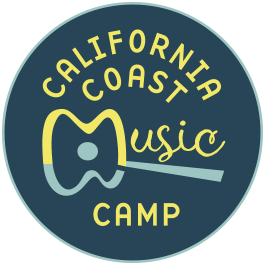Suggested Packing List
The weather is usually hot in the daytime and can be very cold at night. Check the forecast for Carmel Valley. We strongly encourage you to write your name on everything you bring!
Clothing & personal items
- Jeans or other long pants, shorts, shirts, socks, and so on
- Bathing suit
- Sturdy shoes
- Jacket or sweater
- Sunhat
- Dress-up clothes for the dance (optional—jeans and T-shirts are fine too)
- Toiletries, including sunscreen and mosquito repellent (Note: DEET, found in many repellents, can damage the finish on your instrument. Two alternatives to DEET repellents have been deemed effective by the Centers for Disease Control and Prevention— picaridin and oil of lemon eucalyptus. If you can’t find them at drug stores or camping stores, try health food stores.)
- Personal medications, eyeglasses, etc.
- Towels (for yourself and an old towel or bathmat for the floor)
- Bedding (sleeping bag or sheets and blankets, and a pillow)
Don’t forget!
- Flashlights
- Calling card, if you plan to make phone calls. Cell phone reception is limited and dependent upon your provider’s coverage, and we never know which works best!
- Your instrument! And any others (acoustic) you have that you might want to play or let others play
- Earplugs
- Audio recorder and blank media (teachers permit you to record classes; use batteries)
- Small folding chair or camp stool to sit on during class; best not to have arms on it so you have room for your instrument
- Opaque container if you plan to consume alcohol (Why? See our FAQ.)
Other suggestions
- Water bottle
- Camera
- Music stand
- Extra strings
- Songbooks
- Watch or small alarm clock
- Sporting equipment, such as a Frisbee or tennis racquet
- Special food or beverages (including coffee and coffee-making supplies, if you’re particular)
- Wheels or a dolly for your bass or other heavy instrument
- Music-related donations for the CCMC raffle (instruments, books, and so on), which helps fund scholarships
- Solar hanging lights
- Fans
Safety smarts
- Camp is in the woods, where critters big and small—raccoons, mosquitos, other bugs, and so on—live. Always carry a flashlight at night, and be attentive to your surroundings.
- Keep your tent or cabin free of yummy smells that might attract critters. You can store food in one of the kitchens at camp, and leave a toiletry bag in a bathhouse.
Please don’t bring
- Electric instruments or amplifiers (except for use at dance or student concert)
- Weapons
- Illegal drugs
- Pets
- Video cameras
A few tips:
- A gig bag (a soft case) will make it easier to carry around your instrument. If you need to put your instrument in a hard case for air travel, pack the gig bag with clothes and check it as luggage so you’ll have it at the other end. Make sure to put your name (or a luggage tag) somewhere on the gig bag—especially if it’s black.
- It’s a good idea to write your name on anything (everything) you bring to camp.
- If you want to bring an instrument that you haven’t played for a while, you might want to get it checked out at a music store, to make sure it’s playable.
- Try to arrive well rested.
